Links to external sources may no longer work as intended. The content may not represent the latest thinking in this area or the Society’s current position on the topic.
Science in Public Life: Ocean and Marine Science Policy Programme launch
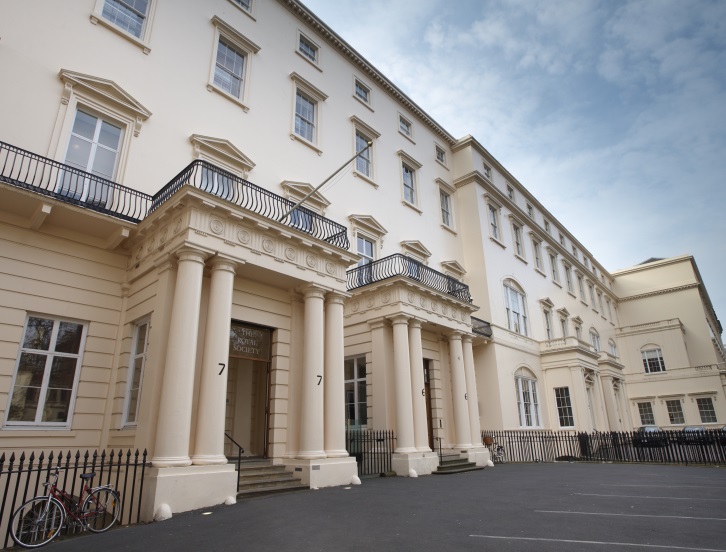
Join the Royal Society for the launch of the Science in Public Life: Ocean Science Policy Programme.
The next decade will be pivotal for the health of the ocean, which is facing unprecedented human and environmental stressors. Science-informed policy responses will be at the forefront of creating an ocean which is both healthy and meets the needs of humanity sustainably.
The Royal Society is launching the new Ocean Science Policy Programme to support the science and policy needed to meet the goals of the UN’s Ocean Decade. The programme seeks to bring early career researchers, ocean professionals, and policy makers together to identify the critical knowledge to help create a sustainably managed, healthy ocean.
On the day, you will have the opportunity to engage with ocean thought-leaders, network with researchers and policy professionals from a range of marine-related disciplines, and put your mind to some of the pressing interdisciplinary challenges facing our seas.
Attending this event
The event is open to all policy makers, early career researchers and early career ocean professionals working in the field of marine science or policy.
If you would like to participate in-person on the day, please email the Resilient Futures Team noting your current occupation/institution and area of focus, as well as any dietary requirements. Please be aware that space on the day will be limited and advanced registration is essential.
Watch the livestream
Ask a question
Schedule
Chair
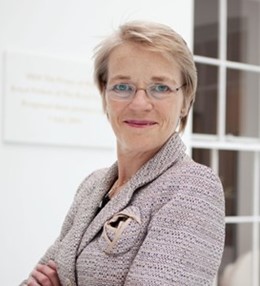
Dame Julie Maxton

Dame Julie Maxton
Dame Julie Maxton is the Executive Director of the Royal Society, the first woman in 350 years to hold the post. Before taking up her position at the Royal Society in 2011 Julie was Registrar at the University of Oxford, the first woman in 550 years in the role.
She is an Honorary Fellow of University College Oxford, a Bencher of the Middle Temple, a Freeman of the Goldsmith’s Company and a Board member of Sense about Science. In the past she has also been on the Boards of the Alan Turing Institute, Blavatnik School of Government in Oxford, Haberdasher Aske’s School (Elstree), Engineering UK, Charities Aid Foundation and The Faraday Institute.
Originally trained as a barrister at the Middle Temple, Julie combined a career as a practising lawyer with that of an academic, holding a number of senior academic positions, including those of Deputy Vice Chancellor, Professor and Dean of the Faculty of Law at the University of Auckland, New Zealand. Academic and other recognition Julie has received include a CBE (2017) and Honorary Degrees from the Universities of Huddersfield, Warwick, Canterbury, Hull and Bristol.
She is the author of several books and numerous articles concerned with trusts, equity, commercial and property law.
Chair
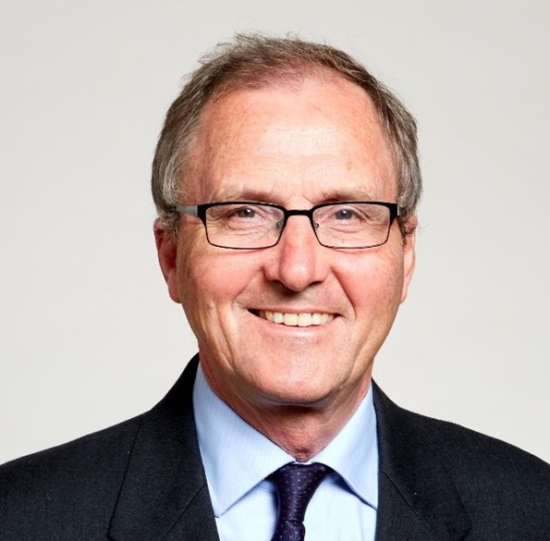
Professor Sir Ian Boyd FRS

Professor Sir Ian Boyd FRS
Professor Sir Ian Boyd is currently a professor at the University of St Andrews and Chair of the UK Research Integrity Office.
He was Chief Scientific Adviser at Defra from 2012-2019. He is a marine and polar scientist and previously served as the first Director of the Scottish Oceans Institute at St Andrews.
He is a director of a number of trusts and companies and is a Board member of UKRI. He is co-chair of the Environment Council for Scotland with Scotland’s First Minister.
In addition to being President of the Royal Society of Biology he is a Fellow of the Royal Society and of the Royal Society of Edinburgh.
Chair
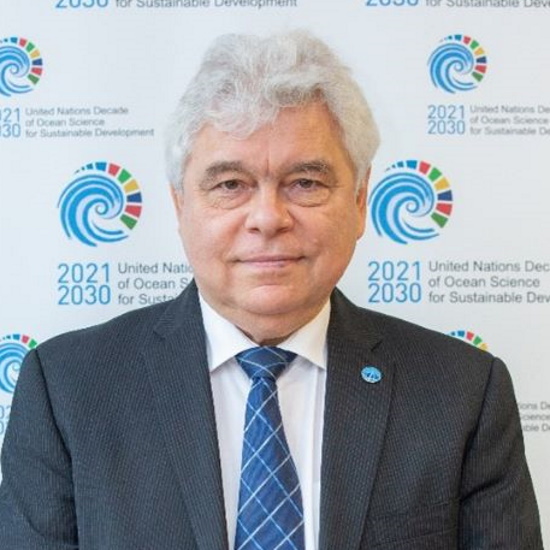
Dr Vladimir Ryabinin

Dr Vladimir Ryabinin
Dr Vladimir Ryabinin is the Executive Secretary of the IOC, the Intergovernmental Oceanographic Commission of UNESCO, and Assistant Director-General of UNESCO.
He is an oceanographer, marine engineer, meteorologist, and climatologist. He originated several mathematical models for the ocean, atmosphere, wind waves, etc., and is an author of hundreds of scientific publications.
Since 1980s, Dr Ryabinin has been involved in various capacities in the activities of the United Nations and contributed to core design and coordination of such international initiatives, as the Global Ocean Observing System and the World Climate Research Programme.
The current work of IOC and Dr Ryabinin is focussed on creating a solid scientific foundation for managing the ocean sustainably, including through the UN Decade of Ocean Science for Sustainable Development, 2021-2030.

Alison Clausen

Alison Clausen
Alison Clausen is the Deputy Global Coordinator of the UN Decade of Ocean Science for Sustainable Development at IOC-UNESCO.
She joined IOC as a programme specialist in 2019 with over twenty-five years’ professional experience in program and project development and management in the areas of marine conservation, marine policy, and climate change adaptation.
Before joining IOC she was based in Madagascar, where she worked throughout the Western Indian Ocean region for the World Bank and most recently as the Regional Director for the Madagascar and Western Indian Ocean program of the Wildlife Conservation Society. Prior to that she lived in Vietnam where she worked through South East Asia for a range of development banks, UN agencies and NGO partners.
Chair

Professor Edward Hill

Professor Edward Hill
Professor Ed Hill CBE is Chief Executive of the National Oceanography Centre (NOC), one of the world’s most innovative oceanographic institutions.
He has a research background in physical oceanography, specialising in the circulation of continental shelf seas and participated in over 20 research expeditions. Professor Hill received his MSc and PhD degrees in oceanography from Bangor University and his BSc in applied mathematics from the University of Sheffield.
Professor Hill has served, and continues to serve on numerous national and international advisory bodies, including: International Steering Group of the Global Climate Observing System (GCOS), the European Marine Board (EMB), the cross-Government UK Marine Science Coordination Committee (MSCC), the Governing Board of the National Partnership for Ocean Prediction (NPOP) and is the Head of UK Delegation at the Intergovernmental Oceanographic Commission (IOC) of UNESCO (United Nations).
He was appointed a Commander of the Most Excellent Order of the British Empire (CBE) in 2020 for services to environmental sciences. Professor Hill has served, and continues to serve on numerous national and international advisory bodies.
Chair

Professor Sir Ian Boyd FRS

Professor Sir Ian Boyd FRS
Professor Sir Ian Boyd is currently a professor at the University of St Andrews and Chair of the UK Research Integrity Office.
He was Chief Scientific Adviser at Defra from 2012-2019. He is a marine and polar scientist and previously served as the first Director of the Scottish Oceans Institute at St Andrews.
He is a director of a number of trusts and companies and is a Board member of UKRI. He is co-chair of the Environment Council for Scotland with Scotland’s First Minister.
In addition to being President of the Royal Society of Biology he is a Fellow of the Royal Society and of the Royal Society of Edinburgh.

Alison Clausen

Alison Clausen
Alison Clausen is the Deputy Global Coordinator of the UN Decade of Ocean Science for Sustainable Development at IOC-UNESCO.
She joined IOC as a programme specialist in 2019 with over twenty-five years’ professional experience in program and project development and management in the areas of marine conservation, marine policy, and climate change adaptation.
Before joining IOC she was based in Madagascar, where she worked throughout the Western Indian Ocean region for the World Bank and most recently as the Regional Director for the Madagascar and Western Indian Ocean program of the Wildlife Conservation Society. Prior to that she lived in Vietnam where she worked through South East Asia for a range of development banks, UN agencies and NGO partners.

Professor Edward Hill

Professor Edward Hill
Professor Ed Hill CBE is Chief Executive of the National Oceanography Centre (NOC), one of the world’s most innovative oceanographic institutions.
He has a research background in physical oceanography, specialising in the circulation of continental shelf seas and participated in over 20 research expeditions. Professor Hill received his MSc and PhD degrees in oceanography from Bangor University and his BSc in applied mathematics from the University of Sheffield.
Professor Hill has served, and continues to serve on numerous national and international advisory bodies, including: International Steering Group of the Global Climate Observing System (GCOS), the European Marine Board (EMB), the cross-Government UK Marine Science Coordination Committee (MSCC), the Governing Board of the National Partnership for Ocean Prediction (NPOP) and is the Head of UK Delegation at the Intergovernmental Oceanographic Commission (IOC) of UNESCO (United Nations).
He was appointed a Commander of the Most Excellent Order of the British Empire (CBE) in 2020 for services to environmental sciences. Professor Hill has served, and continues to serve on numerous national and international advisory bodies.
Chair

Georgia Park

Georgia Park
Georgia is Programme Manager for the Science in Public Life Programme at the Royal Society, which aims to increase the flow of knowledge and people between academia and policy.
Previously, Georgia has worked in academic publishing for Macmillan, Palgrave and Oxford University Press. She holds a BA in Human Geography from the University of Southampton, and a Master’s in Publishing from Edinburgh Napier University.
Chair

Professor Sir Ian Boyd FRS

Professor Sir Ian Boyd FRS
Professor Sir Ian Boyd is currently a professor at the University of St Andrews and Chair of the UK Research Integrity Office.
He was Chief Scientific Adviser at Defra from 2012-2019. He is a marine and polar scientist and previously served as the first Director of the Scottish Oceans Institute at St Andrews.
He is a director of a number of trusts and companies and is a Board member of UKRI. He is co-chair of the Environment Council for Scotland with Scotland’s First Minister.
In addition to being President of the Royal Society of Biology he is a Fellow of the Royal Society and of the Royal Society of Edinburgh.
| 14:00 - 14:10 |
Defra and UNESCO
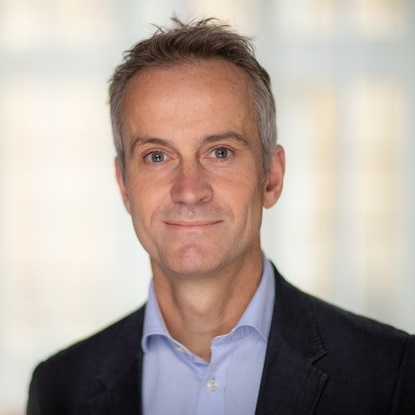
Professor Gideon Henderson FRS

Professor Gideon Henderson FRSGideon Henderson FRS became Defra’s Chief Scientific Adviser from October 2019 and is a Professor of Earth Sciences at the Department of Earth Sciences, University of Oxford. He is also a Senior Research Fellow at University College, Oxford and an Adjunct Associate Research Scientist at the Lamont Doherty Earth Observatory of Columbia University. In 2013, he was elected a Fellow of the Royal Society. His research uses geochemistry to understand surface earth processes, particularly those relating to climate, the ocean, and the carbon cycle. |
|---|---|
| 14:10 - 14:20 |
UK Hydrographic Office

Rear Admiral Peter Sparkes

Rear Admiral Peter SparkesPeter Sparkes became the Acting Chief Executive of the UK Hydrographic Office (UKHO) in July 2020 and was subsequently appointed Chief Executive in May 2021. To take up the role formally, Peter retired from the Royal Navy. Born and educated in Liverpool, UK, Peter joined the Royal Navy as a graduate entrant Surface Warfare officer in 1990. Following successive frontline seagoing roles, on operations in the Arabian Gulf, the Adriatic, and in the North and Western Atlantic, he qualified as a Principal Warfare Officer in 1998, specialising in Communications and Electronic Warfare. As Operations Officer of the amphibious flagship HMS FEARLESS, he served in the Mediterranean and Black Sea. Peter was subsequently selected to be the Executive Officer and second in command of the frigate HMS NORFOLK, deploying to Iraq in 2003. As a Commander, he commanded the frigate HMS CUMBERLAND on a notably successful counter-piracy deployment to the Gulf of Aden in 2008. Upon promotion to Captain in 2010, Peter was charged with the generation of the UK’s replacement Ice Patrol Ship, HMS PROTECTOR. Thereafter, he commanded the Royal Navy’s icebreaker on two fascinating austral summer deployments to Antarctica. As a Commodore (1*), he had the privilege of commanding the 46 units (aircraft carriers, destroyers, frigates, mine-hunters, patrol vessels, and the UK maritime explosive ordinance disposal teams) of the Portsmouth Flotilla. An assignment which included overseeing the acceptance into service of the QUEEN ELIZABETH Class aircraft carriers. Ashore, Peter Sparkes has served in Ministry of Defence acquisition appointments, with a remit of defining Joint information warfare and maritime situational awareness capabilities. This included the development of Royal Navy’s Warship Electronic Charting Display Information System (WECDIS). Within Navy Command he specialised in personnel management and had responsibility for, and oversight of, all Royal Navy and Royal Marine officer and other rank career management below the rank of Captain / Colonel. As a Captain he was the Permanent Joint Headquarters (PJHQ) J5 lead for operational planning in Africa and the South Atlantic. Latterly, he was privileged to serve in Washington DC as the UK Chief of Defence Staff’s Liaison Officer to the US Joint Chiefs of Staff (2018 – 2019). Peter was promoted to Rear Admiral (2*) and joined the UKHO as the National Hydrographer in October 2019. |
| 14:20 - 14:30 |
Foreign, Commonwealth and Development Office

Lowri Griffiths

Lowri Griffiths |
| 14:30 - 15:10 |
Q&A
|
Chair

Professor Gideon Henderson FRS

Professor Gideon Henderson FRS
Gideon Henderson FRS became Defra’s Chief Scientific Adviser from October 2019 and is a Professor of Earth Sciences at the Department of Earth Sciences, University of Oxford.
He is also a Senior Research Fellow at University College, Oxford and an Adjunct Associate Research Scientist at the Lamont Doherty Earth Observatory of Columbia University.
In 2013, he was elected a Fellow of the Royal Society. His research uses geochemistry to understand surface earth processes, particularly those relating to climate, the ocean, and the carbon cycle.
Chair

Professor Sir Ian Boyd FRS

Professor Sir Ian Boyd FRS
Professor Sir Ian Boyd is currently a professor at the University of St Andrews and Chair of the UK Research Integrity Office.
He was Chief Scientific Adviser at Defra from 2012-2019. He is a marine and polar scientist and previously served as the first Director of the Scottish Oceans Institute at St Andrews.
He is a director of a number of trusts and companies and is a Board member of UKRI. He is co-chair of the Environment Council for Scotland with Scotland’s First Minister.
In addition to being President of the Royal Society of Biology he is a Fellow of the Royal Society and of the Royal Society of Edinburgh.
